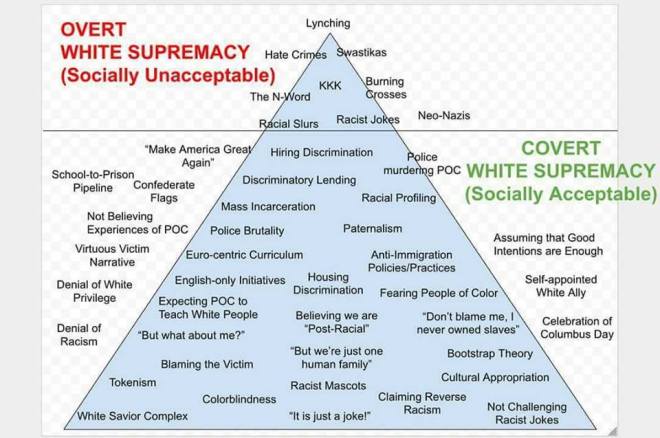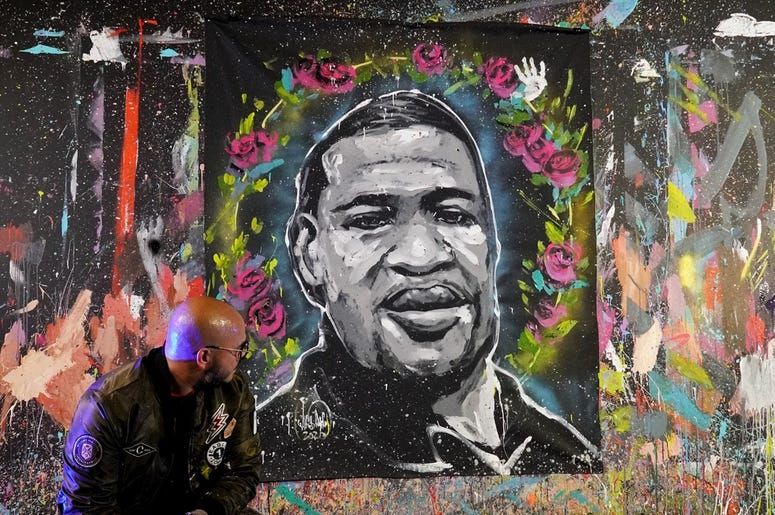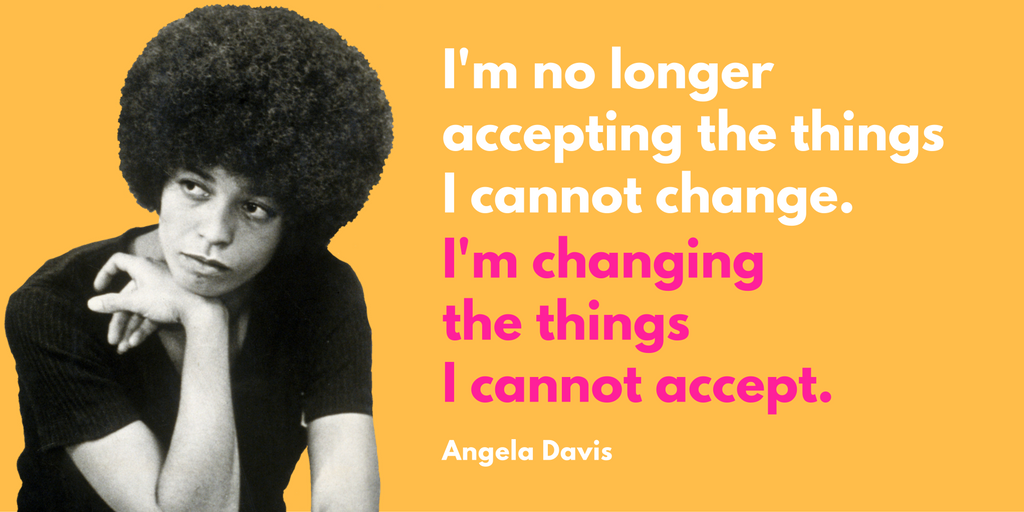Is that Eric Garner worked
for some time for the Parks and Rec.
Horticultural Department, which means,
perhaps, that with his very large hands,
perhaps, in all likelihood,
he put gently into the earth
some plants which, most likely,
some of them, in all likelihood,
continue to grow, continue
to do what such plants do, like house
and feed small and necessary creatures,
like being pleasant to touch and smell,
like converting sunlight
into food, like making it easier
for us to breathe.
Ross Gay is a poet, professor at Indiana University and author of the collection “Catalog of Unabashed Gratitude.”
It's hard to put the rage and heartbreak we are feeling into words. It feels near impossible for me to put my big feelings into anything resembling a coherent blog post right now, but the truth is, I couldn't wait another day to write this, regardless of how scattered it might be. Continuing to be silent while our brothers and sisters are murdered by police is akin to standing by and watching while a fire burns. Staying out of the arena while I figure out how to say what I feel, and worrying whether I am saying it "right" is simply allowing myself to hide behind my own perfectionism and fear in exchange for continuing to be complicit. I'm imperfect and I'm angry and I'm likely going to make a "mistake" when I talk about this.
So be it. The real mistake would be convincing myself that my feeling uncomfortable is more important than other human beings who feel (and are) physically at risk, every moment of every day, simply because of the color of their skin.
It's time to speak up, to stand up, and acknowledge white supremacy. Will I say something awkward at some point? Offensive? Selfish? I can almost guarantee it.
So be it. White folks like me standing up and talking about racisim and white supremacy is crucial to actively dismantling a system that oppressses people based on the color of their skin and I'd rather be an imperfect human being talking about racism that someone who isn't willing to open my mouth at all. That's not ok anymore.
Isn't this a site for conversations around creativity and our innate human right to express ourselves through art? Yes. And not being murdered by the police in your own bed, car, neighborhood, and community is essential to human and creative expression. Period.
This week, I've cried, I've called, I've posted, signed petitions, and been glued to social media, watching the videos of the arrests, protests, continued police brutality against citizens, and commentary (and comments) unfurl. It feels like watching a house burn because there is a fire raging right now, and long after the flames were doused on the building in MN, the blaze of spirit remains. I've taken action this week and it doesn't feel like enough.
This post isn't here to debate the urgency of dismantling the racist systems that literally kill black Americans and I'm not writing because I think I have the answers. I'm showing up because I believe that it's the only thing we can do in this moment, in this movement, and I invite us to share a conversation here in the comments about how we can acknowledge the collective pain we feel and take action on ending white supremacy once and for all.
What are you doing this week to educate yourself, to examine your own white privlege and the ways you have benefitted from a racist system? Here are five things that I've been doing these last few days, that while they aren't dousing the rage I feel, are helping to ground me and focus on what I can do in this moment. And though it feels awful to feel angry, would I really want to feel ok with all this going on? After all, ignorance is bliss, but at what cost?
1. This graphic (below) has helped me to realize and reflect on some of the ways that white supremacy masquerades in everyday life. It's not easy to see the ways you gained something based on someone else being oppressed; some are clear and others are covert. Seeing requires setting down your pride as well as questioning everything you believed about merit and who is deserving of success and happiness and what it means to enjoy security. It means looking at the way you were raised (what people told you regarding equality versus what you saw them model), the religion you subscribe to, your finances, the films you watch, the views you hold about certain cities and neighborhoods. It's so much easier to not examine these things. But we must. And I'll tell you, once you see, you can't unsee.
 Image courtesy of Radical Discipleship
Image courtesy of Radical Discipleship
2. Utilize these curated resources that already exist and that are PACKED with ideas for taking action in your own life. And don't forget, talking to people in your own life, including family and children (and thus in your sphere of influence) is crucial.
- This Google Doc is absolutely PACKED with ideas, books, resources for racial justice
- 75 Things White People Can Do For Racial Justice
- Rachel Ricketts Antiracism Resources
- A recent post on Cup of Jo blog, and the comments are incredible and informative
3. Be proactive about learning from people who have experienced racism because of the color of their skin. Believe them when they say they are hurting. And? Don't expect them to take their personal time and energy to tell me exactly how I can help. For me, this has meant not burdening the people of color in my life with direct messages of "I'm so sorry this is happening, can you tell me how I can help?" but trying to take the onus of research and action steps on myself. For me, this has meant purchasing some books on becoming anti-racist and books that examine a non-white perspectives of oppression. After all, become aware is the first step. So far, I've got So You Want to Talk About Race by Ijeoma Oluo en route via my local bookstore (PLEASE buy local whenever you can via this handy dandy site that helps you locate a small bookshop near you to purchase from), and on Audible, I've queued up Teaching to Transgress by Bell Hooks and How to be an Antiracist by Ibram X. Kendi. I've got so much to learn.
4. Asking where I have power in my own life and how I can bring anti-rascist work for these areas. I am so grateful to be a teacher and specifically, I teach teachers at the graduate level how to work with students in classrooms in a variety of settings. Goodness knows I'm an imperfect professor, and I still find myself stuck in my own biases and perspectives and have to actively work through how I am approaching pedagogy and curriculum. This week I'm using my rage as a way to recommit to making my classroom a place where I'm actively antiracist and don't fall back on a white centric view in my courses. For me, this has meant reviewing my curriculum for my documentary theatre class and making sure that I am being even more inclusive with the reading list my students get each semester. In doing so, I made the decision to include a new play by Larissa FastHorse, a Native American playwright, and Trans Scripts by Paul Lucas, a documentary play by that tells the stories of trans women onstage. It's small, but it's a start. You have power. Use it where you can.
5. Recommit to or start following non-white activists, artists, and thought leaders. As white people who benefit from the racist system, we must actively work to change that system AND at the same time, we must allow people of color to lead and allow their voices to be heard above ours. Shaun King (who has a brilliant hotline set up to demand justice for George Floyd), Layla Saad, Brittany Packnett, Rachel Cargle, and Shaka Senghor, are just a few to start with. I've been floored at the number of new to me activists and artists of all kinds that I've discovered just this morning writing this blog post, people that aren't profiled in mainstream media and who are doing important, beautiful work. Seek them out. You won't be sorry. Do research of your own and find countless human beings who have been speaking about these injustices for much longer than we as white folks have been aware or cared to listen. Oh, and I also recommend Standing Up for Racial Justice, which is a national network of folks that gather and mobilize to dismantle white supremacy and build just communities. I've been to meetings in the past and you can look up a chapter near you.
6. Put your money where your mouth is. Donate to Minnesota Freedom Fund, which helps to post bail for protestors in MN, and google other options for your local area. If you are in or near NY, Brooklyn Bail Fund is another great prg doing this work. Donate to your local Black Lives Matter chapter. Offer to provide food and water for an upcoming protest. Seek out local organizations that support arts, education, health equity, and othr efforts for your black neighbors and community members and make a donation. Pay non-white artists, writers, and activists for the materials they share on white supremacy instead of simply expecting them for free.
So, what other resources do you suggest during this time? I would love to hear, in the comments, or on social media. As Lin-Manuel Miranda says, "This is not a moment, it's the movement." This is a marathon, not a sprint, and we need to continue to take good care of ourselves and each other at this time. Fight, rage, speak out. Drink water, sit in stillness for five minutes, cuddle with your pet, sing loudly to your favorite song. We need us, and the only way to make sure we can still continue caring and working for change is to take care.
Let us stand
and speak
and kneel
and march
and write
and donate
and read
and teach
and preach
and pray
and scream
and cry
and imagine
and dream
and create
and build
and organize
and educate
and rejoice for hard won victories
and care for ourselves and one another
together.
Let us not forget that though revolution is raw and painful, the point is to fight for a world where we can create instead of cry. What if the end goal of the fight for justice is joy?


